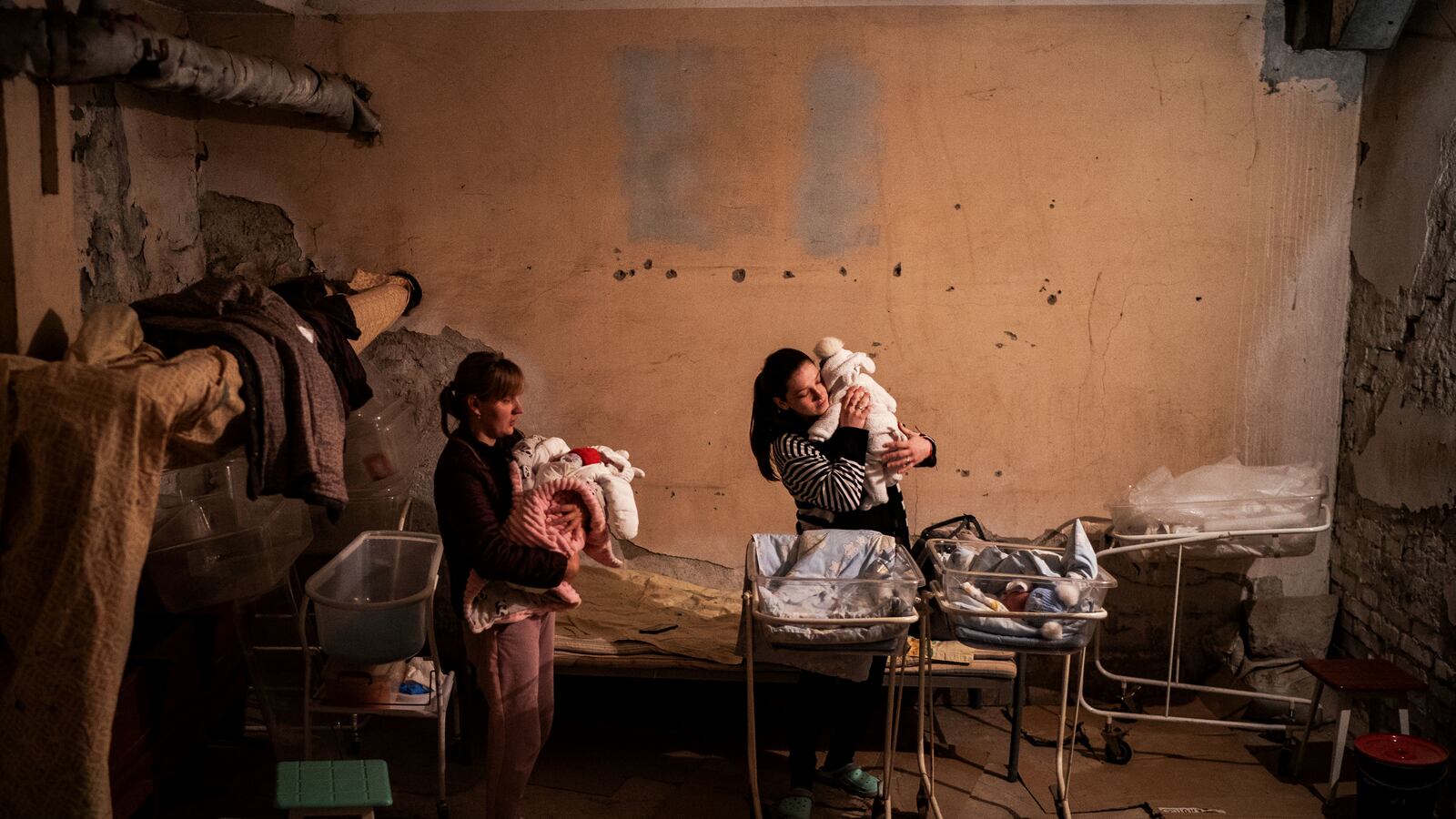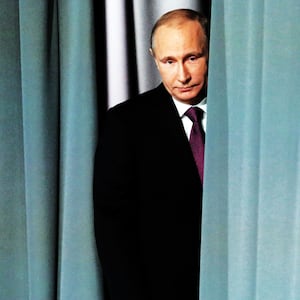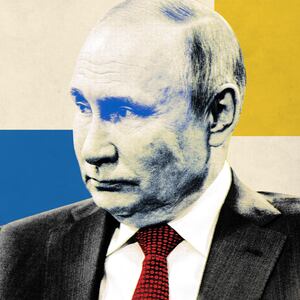ODESA, Ukraine—The intensive care unit at Odesa’s Regional Children Hospital was crowded with babies who were born prematurely. The lone doctor on duty and the three nurses who were working the third floor were exhausted. Air raid sirens blared intermittently during the day, but the staff were confined to their unit with the 11 tiny babies hooked to oxygen and feeding tubes.
Since the start of the war, Odesa’s doctors have registered a significant spike in the number of premature babies, up to 25 percent more than usual, which hospital officials attribute to stress. Odesa now admits displaced mothers-to-be from all over Ukraine’s southern regions, including occupied Kherson and war-torn Mykolaiv.
The doctor on duty at the pathology department, Lyudmila Vdovina, said some of the babies in the intensive care unit had serious pathologies. “We receive patients from different badly bombed regions, where pregnant women suffer overwhelming stress. The increase of prematurely born babies” is now clear, she told The Daily Beast. “You cannot imagine what these women go through.”
When another air raid siren went off, the hospital’s personnel asked all visitors to leave the floor and wait outside. But there was no bomb shelter for them to take shelter in, just a dark basement that looked more like a dungeon.
An American charity has supplied the hospital with three mobile incubators that have been set up in a storage room. In case of an attack on the hospital, the doctors can use the machines to move their tiny patients. “Nobody was expecting the war. We were not ready for bombs to fall on Odesa but Putin was ready to fire at us,” Vdovina said.
A crowd of women—some pregnant, some with babies in their arms—were waiting in the hospital’s yard. A young electrician, Maksim, was trying to comfort his wife, Yulia, 32, who was holding her 2-month-old baby boy. She was shaking—the loud sirens gave her flashbacks, she said.
The first bombs to “catch up” with the family hit Maksim’s hometown of Mykolaiv in March and killed his father-in-law. Yulia and Maksim decided to escape to Odesa.
“I thought I lost my baby, he was only 29 weeks, when my waters broke and I went into labor, but the doctors saved his life,” Yulia said. She was exhausted from the missiles and the sirens. “We thought it would be peaceful here but the sirens are everywhere we go.” Another woman was crying outside the hospital. She said her baby boy was upstairs, connected to oxygen tubes on the third floor.
Russian cruise missiles rained on Ukraine every single night this week. Five cruise missiles destroyed a school, a cultural institute, and every home on a street called Mir, or Peace, in Odesa. “My soccer team has no place to play any longer and my school is completely destroyed, there will be no more fun for kids, I guess,” Dima, 12, told The Daily Beast.
A spokeswoman for the defense forces in Odesa says she understands why there is an increase in prematurely born babies. “Psychologically, I understand. I am a mother and a press officer—neither me nor my husband, a general of the State Border Guard Service, could sleep a solid night lately,” captain Natiya Gumenyuk told The Daily Beast in an interview. “But panic is the enemy’s weapon, it’s up to us to defeat panic. We talk, we comfort people. Odesa was a blooming, developing city and it will be again. We just need to close like a flower bud during this wartime, but try to preserve all our hopes.”
Ukraine’s mothers and pregnant women feel increasingly heartbroken thinking about their children’s future.
The first lady of Ukraine, Olena Zelenska, addressed the U.S. Congress this month, talking about “the invasive terrorist war” that Moscow had started against her country, presenting images of murdered little girls and a 3-year-old boy learning to walk on prosthetics. The war deprived Ukraine’s parents and children of all normality, Zelenska said, and the future was uncertain even for their own children. “Will my son be able to return to his school in the fall? I don’t know, like millions of mothers in Ukraine,” Zelenska said. “Will my daughter be able to go to university and at the beginning of the academic year experience student life? I cannot answer.”
Earlier this month, a Russian missile hit an apartment block in the outskirts of Odesa, killing at least 21 people, including one 12-year-old boy. Igor Shpak, the head doctor of a maternity ward in the children’s hospital, is prepared to accommodate up to 150 mothers with babies in the bomb shelter of his hospital. Giving a tour around it, Shpak proudly showcased the shelter, a room with three incubators for prematurely born babies. “I make all our patients come down here. Our shelter is the best in the country, it can protect from a nuclear hit. We are ready to provide help to at least 150 patients here,” Shpak told The Daily Beast.
One of the mothers treated at Shpak’s maternity ward, Alena Polishuk, 32, was six months pregnant when a Russian tank blew up right in front of her in her home town of Mykolaiv.
“My panic was mostly about the future, complete uncertainty about what will happen to us next,” she told The Daily Beast. “Both my pregnancy and my motherhood have been a nightmare, so far.”








